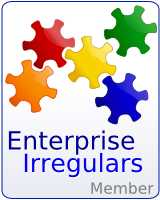I attended the Oracle Fusion event last wednesday in the San Francisco City Hall (an amazing building, worth peeking around in). Fyi, my colleagues and I registered fully disclosing our SAP affiliation and using our SAP addresses. We had no problem getting in, which i thought was damn decent of them since SAP is, afterall, an important Oracle partner ( a large % of their db revenue comes from SAP customers).
Here are some links to various write ups on the event (no need for me to re-hash):
http://www.amrresearch.com/Content/View.asp?pmillid=19115http://news.com.com/Oracle+details+postmerger+plans/2100-1014_3-6028523.htmlhttp://dealarchitect.typepad.com/deal_architect/2006/01/but_charles_it_.htmlAlso, below are some of my notes. These are not extremely complete given that they were complementary to a blog post concerning the event on an internal SAP blog.
Chuck Phillips- Chuck Phillips mentioned SAP by name twice in his opening statement and referenced "the competition" throughout both his speeches
- repeatedly emphasized that the move to Fusion Aps was "no big deal"
- Closing remarks
-- Announced that Oracle is JD Powers' latest certified technology and support company- stated that 1st tech company to have entire global support process certified
-- Innovation: No one else i s both willing and able to make the investment in the next generation solution
--"only one powerful and big enough to do it"
- Few points on Oracle in 2010- the leading On Demand company
-- Software as Service is important to us
-- "more on demand customers in enterprise then any other packaged apps company"
-- more subscription business
Thomas Kurian- Fusion Middleware
- mentioned SAP 3 times by name
- Fusion Middleware achievements
-- 5 Gartner Magic Quadrants
-- 9 Forrester awards
-- 145 total awards
-- 220 patents
- Reference clients include: Merrill Lynch, Dell, Cisco, Virgin
-- 38 of Fortune 50, 800+ of Global 1000
John Wookey- Fusion Apps
- 2006 will see first use of Fusion Technology
- Fusion reporting
-- begin delivery of library of Fusion reports in JDE, PS, EBS
-- Publishing of web services repository
-- Extended directory of Fusion services
-- Mapping to current integration repositories
-- Business process flows
-- BPM for Siebel and additional industry solutions
Duncan Angove- GM of Oracle Retail
- "We acquired solutions that our customers had already embraced and fused them with what we already had"
-- Quoted the Stratoscape numbers from the recent Oracle Retail press release
Phillips closed by saying that Larry had the flu (why did they wait to the end to mention this? one of those sudden onset things?) and by introducing Safra and three board members






